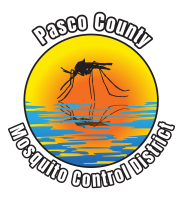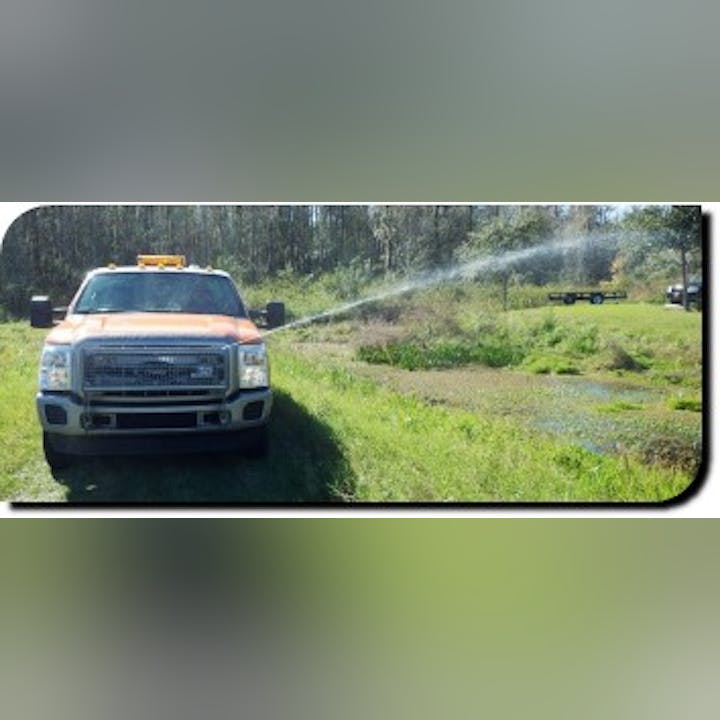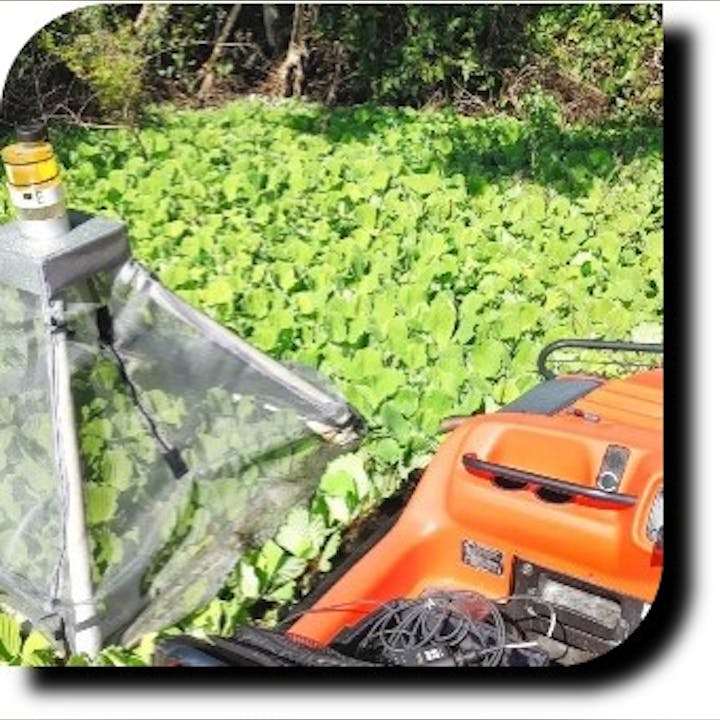Integrated Mosquito Management
The PCMCD implements an Integrated Mosquito Management (IMM) program that is a well-balanced, scientific approach to controlling mosquitoes. PCMCD reduces mosquito populations by various means, including surveillance, source reduction, aquatic plant management, the use of biological controls, insecticides applications, and public education. Mosquito populations can increase rapidly depending on rainfall, tidal flows, and general weather conditions. Mosquito populations must be monitored consistently to determine which species are found in a particular area and to assure that control is carried out in the most efficient and effective manner.
There over 45 mosquito species in Pasco County and some of those species differ in habitat, behavior, and preferred bloodmeal source. Organized mosquito control is necessary because mosquitoes are not only a nuisance as biting insects, but are also involved in transmitting diseases to humans and other animals.
Controlling mosquitoes in the larval stage (larviciding) is the District’s preferred method of control because the larvae are often concentrated in large numbers in various aquatic habitats. If the larvae are successfully controlled in these confined areas, this prevents a major emergence of flying and biting adult female mosquitoes which have the potential to spread disease. Larviciding is conducted by Field Technicians with the use of trucks, ATVs, lightweight equipment, and sometimes by hand unless access is limited, the area is hard to reach or too large to effectively treat by ground, or the timing of treatment is critical. In such cases, it is often necessary to use helicopters to inspect and treat for larvae. Larval control is one of the main aspects of the District’s integrated approach to effectively manage mosquito populations.
Ultra Low Volume (ULV) trucks are generally used in areas with good road access for targeting adult mosquitoes during the evening while the mosquitoes are most active. Staff actively pursue pestiferous adult mosquito applications during the summer rainy season. Additionally, Wide Area Larvicide Spray (WALS) applications are performed in the late evening or early morning hours to target larval mosquitoes around people’s homes. The WALS combines high volumes of air with low volumes of liquid materials to treat a wide variety of larval habitats and access cryptic habitats of vector mosquitoes more efficiently. WALS applications are often conducted in residential neighborhoods to control potential disease carrying mosquitoes.
Mosquitoes are not only a nuisance as biting insects, but are also involved in transmitting diseases to humans and other animals.






